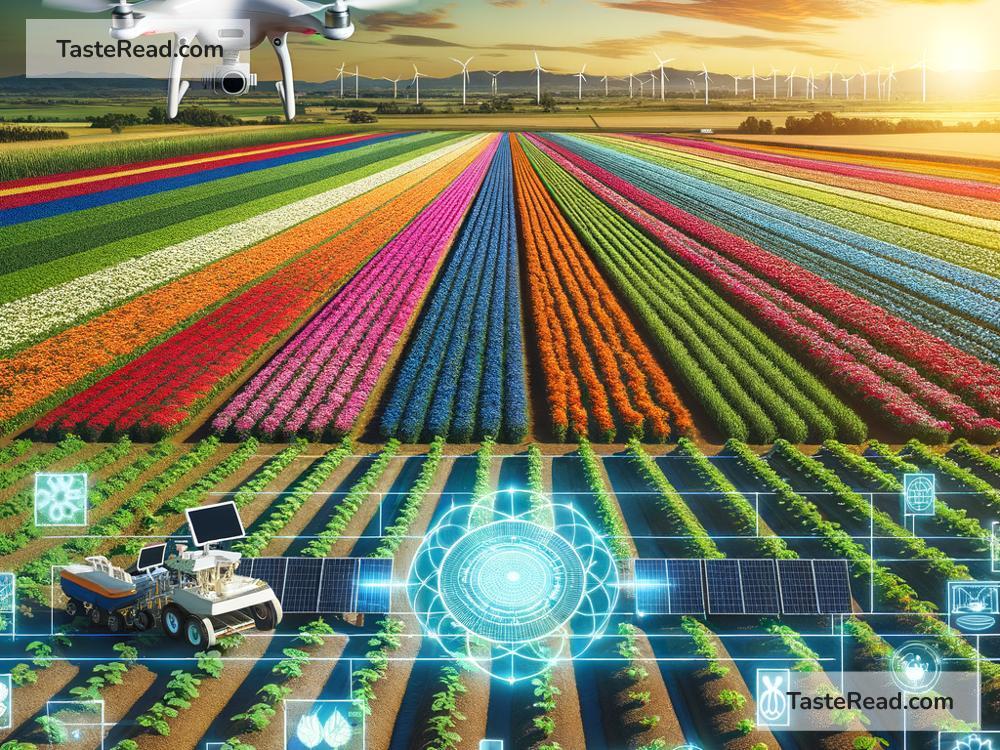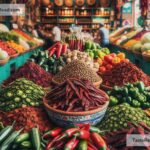The Growing Role of AI in Agriculture
Agriculture has always been one of the most important industries in the world. After all, it provides the food we eat every day. Over time, farmers have used new tools and techniques to grow crops and raise animals more efficiently. From simple hand tools to modern tractors, farming has changed a lot. Today, technology is taking farming even further. Artificial intelligence (AI) is transforming agriculture in ways that were hard to imagine just a few years ago.
What is AI?
AI, or artificial intelligence, is the ability of machines (like computers) to think and make decisions. AI can analyze large amounts of information faster than humans. It can learn from patterns and even predict outcomes. In agriculture, AI helps farmers grow crops more effectively, reduce waste, and make smarter decisions.
How Does AI Help in Agriculture?
AI is a powerful tool for solving challenges in farming. Farmers face many problems, like unpredictable weather, pests, diseases, and growing food for a rapidly increasing population. AI helps tackle these issues with solutions that save time, money, and resources. Here are some ways AI is making a difference in agriculture:
-
Precision Farming
AI helps farmers grow crops in a smarter way, often called “precision farming.” Sensors, cameras, and drones collect data about soil, weather, and crops. AI analyzes this data to suggest the best time for planting, watering, fertilizing, and harvesting. It ensures that farmers use resources like water and fertilizer efficiently. This reduces waste and boosts crop yields (the amount of food grown). -
Detecting Plant Diseases and Pests
AI systems can identify diseases and pests early, before they spread and cause a lot of damage. Farmers can use apps on their smartphones to take pictures of plants and quickly find out if there’s a problem. AI-powered machines, like drones, can scan entire fields and detect areas with issues. Farmers can then focus on treating those areas instead of spraying chemicals everywhere. This saves money and protects the environment. -
Smart Irrigation Systems
Water is one of the most important resources in farming, and it’s often wasted due to poor planning. AI-powered irrigation systems help farmers water their crops more efficiently. These systems use sensors to measure soil moisture levels and weather forecasts to decide when and how much water to use. By using water carefully, farmers can grow healthy crops without wasting this precious resource. -
Improving Livestock Management
AI is not just for crops—it’s also helping farmers take care of animals. Cameras and sensors can monitor animals’ behavior, health, and movement. For example, AI can detect if a cow is sick or if its eating habits have changed. This allows farmers to treat animals quickly and keep their herds healthy. -
Predicting Weather and Market Trends
Weather plays a huge role in farming. AI systems analyze weather data to predict rainfall, temperatures, and storms. These predictions help farmers decide when to plant or harvest their crops. AI can also study market trends to show farmers which crops are in high demand. This helps farmers make better financial decisions.
Benefits of AI in Agriculture
AI is a game-changer for agriculture. It offers many benefits:
- Higher Productivity: Farmers can grow more food while using fewer resources.
- Reduced Costs: Smart tools and systems save money by cutting down waste and improving efficiency.
- Environment Protection: AI promotes sustainable farming by using fewer chemicals and preserving resources like water and soil.
- Better Quality: Farmers can produce healthier crops and raise stronger animals with AI guidance.
Challenges of Using AI in Agriculture
While AI has many advantages, it’s not perfect. There are challenges that need to be addressed:
- High Cost: Buying AI systems can be expensive for small-scale farmers. Many farmers cannot afford drones, sensors, and AI tools.
- Need for Training: Farmers must learn how to use AI technology, and this can take time and effort.
- Internet Access: AI often relies on the internet, but some rural farming areas don’t have strong internet connections.
- Data Privacy: AI collects a lot of data about farms. Farmers need to ensure that this information is secure and not misused.
The Future of AI in Agriculture
Despite the challenges, AI is expected to play an even bigger role in agriculture as technology improves and becomes more affordable. Governments and organizations are working to help small farmers access AI tools and training. In the future, we may see fully automated farms where AI runs machines and decisions are made without human input. While this may sound like science fiction, it is becoming more realistic every day.
Conclusion
AI is transforming agriculture into a smarter, more efficient industry. It helps farmers grow more food, save resources, and protect the environment. With AI, farming is becoming more sustainable and productive, which is important as the world’s population grows and climate challenges increase. However, it’s important to ensure AI tools are accessible to all farmers and used responsibly.
The next time you eat your favorite meal, remember that artificial intelligence might have played a role in producing the food on your plate. AI in agriculture is not just about technology—it’s about feeding the world and shaping the future of farming.


